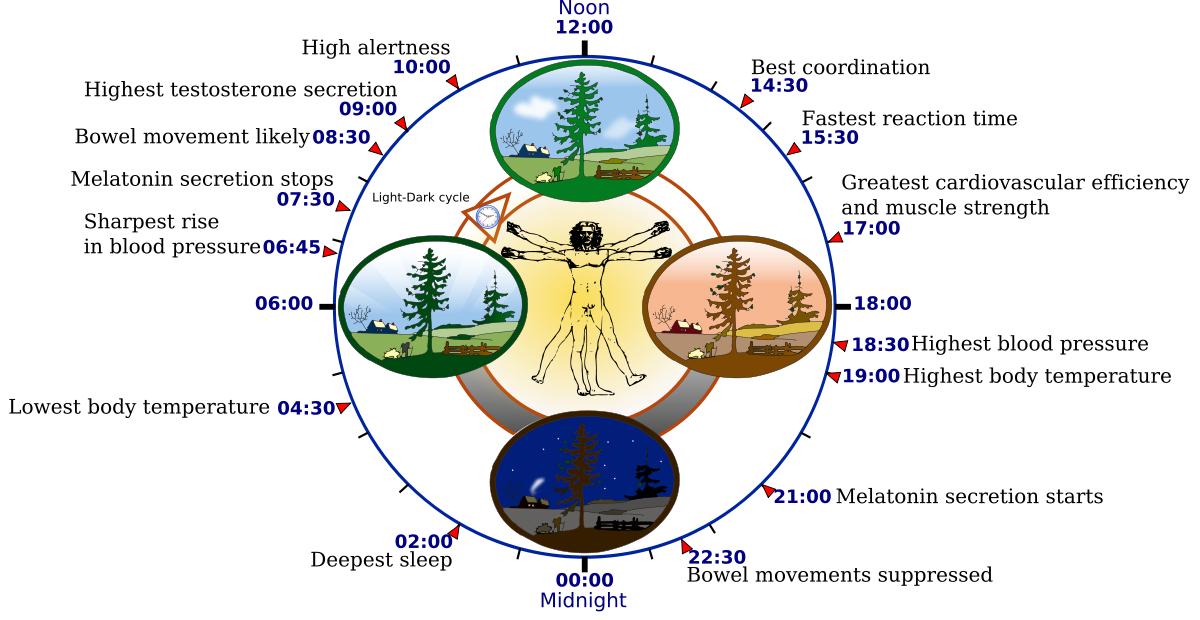Get Easy Health Digest™ in your inbox and don’t miss a thing when you subscribe today. Plus, get the free bonus report, Mother Nature’s Tips, Tricks and Remedies for Cholesterol, Blood Pressure & Blood Sugar as my way of saying welcome to the community!
Sleep ‘cheats’ that boost your memory

Memory, especially long term memory, is a striking capability of your brain.
What’s even more striking is the intricate biological mechanisms that occur within the brain’s cells, in the hippocampus region of your brain, that make it possible for your stored memories to become part of your long-term memory.
This process is known as memory consolidation, and it’s important to prevent the onset of conditions such as dementia and Alzheimer’s.
Eating a healthy diet full of quality nutrients is one major factor that supports the brain’s biological mechanisms to function at their best. And another factor is your body’s circadian clock…
Often referred to as circadian rhythm, or the 24-hour body clock, your circadian clock is the natural pattern your body goes through every 24 hours, which aligns with the light and dark cycle. As you can see, a lot depends on this schedule…

For instance, you’re meant to go to sleep within a few hours of dark, and wake up as the sun arises. That’s the way your body was naturally designed to function.
For any number of reasons you can fall out of rhythm — you may stay up too late at night, work night shifts, eat or drink too late, worry too much and struggle to sleep, etc.
But when it comes to your memory, this disruption can be a big issue…
Filing your memories in your sleep
You see, there is a circadian oscillation that occurs in the brain and when it’s disrupted it can impair your long-term memory. And it all comes down to getting good quality sleep because this circadian oscillation is only activated when you’re in deep REM sleep.
There are four stages of sleep:
N1. Once you close your eyes your body spends five minutes slowing down brain waves, dropping body temperature and relaxing the muscles.
N2. This is the first true stage of sleep that lasts between 10 to 25 minutes. Your heart rate and breathing slow down and your eyes are still. The brain waves become irregular and the brain begins organizing memories for long-term filing. You spend about half the night in N2 sleep.
N3. Finally you enter a deeper, slow wave sleep. The brain waves slow down to smooth patterns, breathing regulates, and blood pressure drops. This is your body’s repair and renewal time where blood flow is directed away from the brain to the body. Hormones are activated to stimulate the immune system and initiate cell and tissue growth and repair. Younger people spend around 20 percent of their sleep time doing stretches in N3 sleep. But as you get older this shortens to around 10 percent, and some people don’t enter this stage at all.
REM. Also known as dreaming sleep, you spend around 20 percent of your sleep time here. This is when the restoration of your mind occurs and your memory clears out irrelevant info while storing those all-important memories for the long term. Every 90 minutes or so, you will enter REM sleep, which lasts around half an hour.
As you age, getting good quality sleep can become more difficult, but the reality is, you still need 7.5 to 8 hours per day to function at your best — and keep your memory in tact.
The most protective sleep strategy is to have a regular routine — going to bed and getting up at similar times each day — as this keeps your circadian sleep/wake cycle synchronized.
But in addition, there are two more ways to get the sleep you need for a stronger memory…
Sleep cheat #1 — Switch off the blue lights
Normally, the decrease of daylight that happens at dusk, signals your body to begin producing melatonin, the natural hormone your body uses to help you start to gear down for a night of rest.
But artificial light interferes with this natural process. Research has found that blue light, especially, suppresses melatonin more than any other type of light. So if you’re exposed to LEDs (computer screens) or work and live in environment with fluorescent bulbs, you’re soaking up lots of blue light.
If you can avoid blue light, and most other light, for at least an hour before you go to bed — and that includes TVs, smart phones and any computer-related devices — your body can more easily begin producing melatonin.
Sleep cheat #2 — Take a power nap
If you find you’re still tired during the day and not getting adequate sleep at night, take a midday nap.
Research by neuropsychologists at Saarland University in Germany, shows that a quick nap can recharge your brain’s batteries and improve your memory’s recall and information retention by 500 percent.
The naps used in this study lasted from 45 to 60 minutes. To measure the effects of napping, the scientists analyzed brain activity called “sleep spindles,” short, quick bursts of brain waves that have been linked to solidifying your memories.
Other studies show a nap can offset the negative effects of a poor night’s sleep and improve your hormones, immune system function and stress responses.
Related: How to get your best sleep ever
Editor’s note: Memory problems don’t have to be a normal part of aging. You can keep a sharp mind well into your senior years if, for starters, you eat more of these 14 brain-fueling superfoods and avoid these six memory-killing foods you’ll discover in Dr. Michael Cutler’s eBook, Nature’s Secrets for an Active, Healthy Mind—At Any Age! Click here to get it for only $9.95 today!
- Xia Z & Storm D. Role of Circadian Rhythm and REM Sleep For Memory Consolidation. — Neuroscience Research. 2017.
- Kang DW, et al. Role of Sleep Disturbance in the Trajectory of Alzheimer’s Disease. — Clinical Psychopharmacology and Neuroscience. 2017;15(2):89-99.
- Epstein MD, et al. (2015). Improving sleep: a guide to a good night’s rest. — Harvard Health Publication. 16-22.












